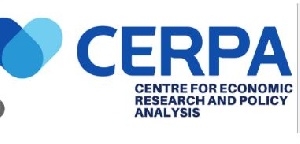Business News of Thursday, 29 May 2025
Source: www.ghanawebbers.com
CERPA advocates for blended wage system to boost productivity, meet labour demands
Ghana’s Labour Market in Transition
Ghana's labour market is largely informal. Over 80% of workers are in the informal sector. There is also increasing underemployment, especially among youth. This highlights the urgent need for wage reform.
The current monthly wage structure offers income predictability. However, it often ignores actual hours worked and productivity. This is particularly true for low-income and part-time roles.
The Case for an Hourly Wage System
CERPA analyzed the benefits of a minimum hourly wage model. Key advantages include:
- Fairer pay linked to hours worked.
- Flexibility for part-time and informal workers.
- Potential income increase through overtime.
- Better budgeting and transparency for workers.
Implementation Risks and Considerations
Despite these benefits, CERPA warns about risks with hourly wages. Key concerns include:
- Income instability and lack of job benefits.
- Risk of exploitation without strong enforcement.
- Possible job loss in small and medium enterprises.
Recommendations for a Successful Transition
To ensure a smooth transition to an hourly wage system, CERPA suggests:
1. Legal reforms to protect hourly workers under the Labour Act.
2. A phased rollout starting with priority sectors in the 24-hour economy.
3. Public awareness campaigns to educate employers and employees.
4. Strengthening labour inspection and enforcement systems.
5. Investing in digital platforms for better wage traceability.
A Hybrid Approach for Ghana
CERPA recommends a hybrid model combining monthly and hourly systems. This approach should be tailored to Ghana's diverse employment realities. A well-designed hourly wage model can promote equity, boost productivity, and protect vulnerable workers.
For more details, read the full brief here: [CERPA Policy Analysis](https://thebftonline.com/2025/05/28/policy-analysis-by-cerpa-rethinking-wage-structures-is-ghana-ready-for-an-hourly-pay-system/).
About CERPA
The Centre for Economic Research and Policy Analysis (CERPA) is based in Ghana. It focuses on independent economic research that supports inclusive development policies.











